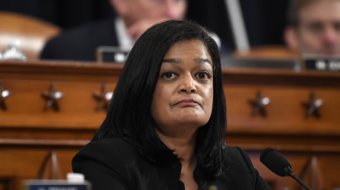
If the Senate decides to vote on the new START treaty with Russia, it will likely garner enough votes for passage, an expert with a top Washington think tank predicted Monday, Nov. 22.
“The (Obama) administration is really determined to move forward on this and it is putting a great deal of pressure on those members of the Senate who are likely to vote in favor of the treaty,” said Kay King, vice president of Washington Initiatives at the Council on Foreign Relations, on a conference call with reporters.
If the Senate refuses to consider the treaty, however, its chances for passage in the next Congress are considerably reduced. “It’s prospects diminish because you’re going to lose a lot of very knowledgeable Senators about the treaty,” King continued, adding that a failure to affirm the treaty would damage U.S.-Russia relations.
She said that the Senate, even in a “lame duck” session, has a Constitutional duty to consider treaties placed before it. This particular treaty has gone through all of the parliamentary processes, including 18 Senate committee hearings, since its submission to the Senate by the Obama administration earlier this year.
The treaty would reduce the U.S. and Russian long-range nuclear missile stockpiles by 30 percent to 1,550 each.
Despite a year’s worth of work on addressing concerns with the treaty and preparing for a vote, Republican Senators are trying to delay the process until the next session of Congress. “That is baffling,” King said. She noted that Senate rules allow one Senator to block progress and create gridlock in that body.
Republicans who have yet to be seated in the Senate are demanding the treaty be held over for their votes, presumably to block its passage. King argued that this demand is unreasonable considering the treaty was submitted and the hearings were held in the current session. Sitting Senators are the most knowledgeable about the treaty and have the Constitutional right to vote on its passage. “They really ought to be the Senate that votes on this particular treaty,” she said. Waiting until the next session is simply a recipe for more gridlock.
Other observers also say the essence of the Republican’s argument is ludicrous. By their logic, the Senate should never vote on any bill, treaty or appointment.
Image: endless lazlo // CC BY-NC-SA 2.0










